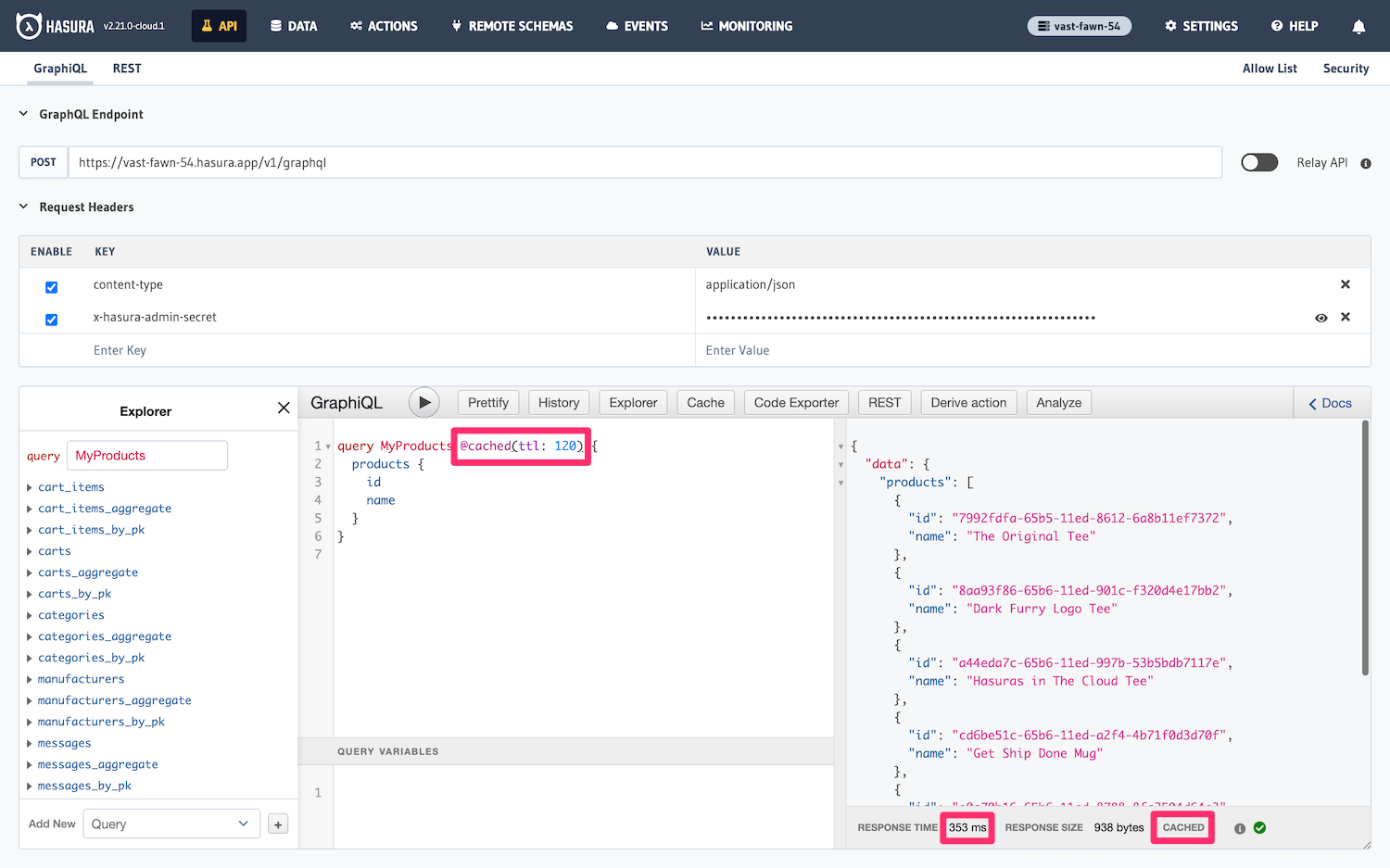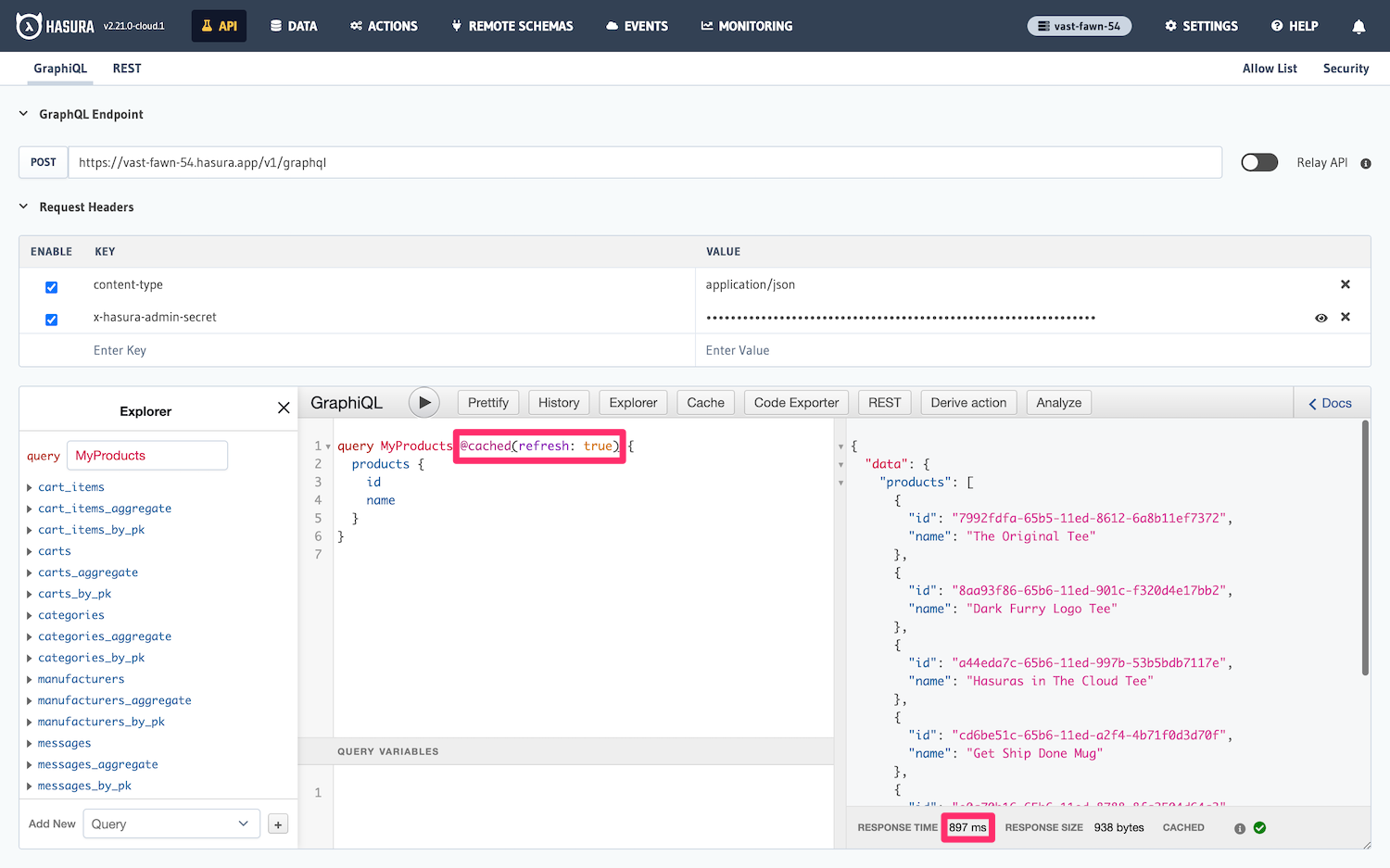Quickstart Caching
By utilizing Hasura Engine's caching layer you will significantly improve the performance of queries while at the same time reduce the load on your data sources. This quickstart guide will walk you through the process of setting up caching for your GraphQL API.
DOCS E-COMMERCE SAMPLE APP
You can use this quickstart with any project, but it pairs well with our docs e-commerce sample app, which you can deploy to Hasura Cloud with one click below. If you've already deployed the sample app, access your existing project.
Basic Caching
To try out caching in the Console, simply click the "Cache" button in the GraphiQL panel in the API tab to add the
@cached directive to your query in the editor. Of course, you can also write this out manually. For this example we
are getting the id and name of all products in the database with:
query MyProducts @cached {
products {
id
name
}
}
You'll be able to see improvements in the response time of the query when the @cached directive is added. Note
that the first query with a @cached directive will always be a cache miss, but subsequent queries will be cache hits.
Setting the time-to-live (TTL)
The @cached directive has an optional argument ttl which can be used to set the time-to-live (TTL) for the cache.
The TTL is the time for which the cache is valid. After the TTL expires, the cache is invalidated and the next request will be a cache miss. The TTL is defined in an integer of seconds.
query MyProducts @cached(ttl: 120) {
products {
id
name
}
}

By default the TTL is set to 60 seconds.
Forcing a cache refresh
The @cached directive has an optional boolean argument of refresh which can be used to force a cache refresh. This
is useful when you want to ensure that the cache is refreshed after a mutation. When this argument is used the query
will take the longer, non-cached time to execute.
query MyProducts @cached(refresh: true) {
products {
id
name
}
}

Recap
What just happened? Well, you just supercharged your query performance using Hasura caching.
You can now use the @cached directive to add caching to your queries, set the length of time they should live for
with the TTL directive and force a cache refresh if you need to. 🎉
See the caching config section for a full description of the caching configuration options.